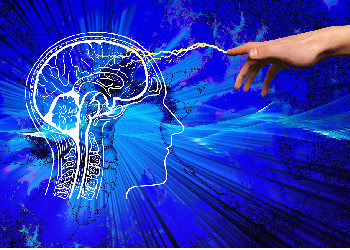The testimony of a researcher (part 2 of 2)
Wisdom, science and intellect
(…) I work in the field of neuroscience applied to communication and I have always been fascinated by the study of the brain. It is the most complex organ we know and it is the result of millions of years of evolution. However, even today, despite the great steps taken by science, the Nobel prizes won, it is not possible to understand why man is often so irrational and illogical, in his behaviour and choices. Science helps a lot in this, but still hasn’t provided a clear answer.
I am daily in touch with many realities, from young university students, to professors, to large work tables around which people who hold roles of great responsibility in national and international companies sit. And it is in each of these contexts that I try to testify to the seriousness and commitment of a job aimed at bringing the added value that serves to elevate human dignity. And, working in the field of neuroscience and communication, all this is not always easy, especially when clashing with commonplaces. But when you work according to the truth and justice that come from God, with the aim of offering a service to the scientific community and to anyone who comes into contact with it, you are able to transmit values and passion even for a very delicate area of research. It is nice to encourage and transmit young people the passion for science, the enthusiasm for research, accompanied by a sense of freedom and responsibility only for what can be useful, within the confines of humanity and ethics.
The true scientist knows that every day he must study to search for the truth (verify his hypotheses), he must add knowledge, because what he learned yesterday, today is no longer enough and will be even less tomorrow. The believing scientist adds to this the daily prayer for the Lord to illumine his mind, to give His Holy Spirit of Wisdom, Science and Intellect, so that any new scientific discovery can be made available to the whole scientific community so that man can be elevated in his dignity as a human being and, marveling at this new knowledge, can rise towards the contemplation of the Truth.
I am also convinced that human reason shows all its strength exactly when it fully realizes its limits. It is the awareness of being able to know through Infinity, but he does not know Infinity. I think of Socrates’ famous phrase, Hoc unum scio, me nihil scire (I know that I don’t know): however much man can think he knows, the things he doesn’t know will be increasingly more. However, faced with this thought, having thirst for knowledge is a duty of man. A phrase from the book of Proverbs reads “God has glory in what he conceals, kings have glory in what they fathom” (Pro 25.2).
As a researcher, it is nice to investigate and discover the functioning of the human mind, aware that I can only know what I am allowed to know and, confident that, sharing this knowledge, there will always be someone else, who in turn will add a little more knowledge… explaining everything up to a certain point, for the rest remains only a great and wonderful mystery.
Patrizia Cherubino, PhD, Neuromarketing





